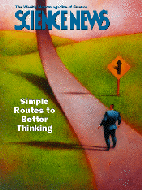CV
Research Interests
- Behavioral Economics / Behavioral Finance
- Default effects
- Investing and saving (1) (2)
- Bounded Rationality / Simple Heuristics for Decision Making
- Social Networks
- Targeting
- Diffusion
- Computational Methods
- Web-based experiments
- Graphical, interactive methods for data collection
- Statistical computing
Quick background
I have received a bachelor's degree in Computer Science, an M.A. in Psychology, and a Ph.D. in Psychology.
My 1996 doctoral thesis from the University of Chicago, contained two main results: (i) in an extensive decision-making competition, simple algorithms performed as well as more sophisticated ones which used three times the information, and (ii) missing knowledge was actually an advantage for the best algorithms, a phenomenon which I call the "less-is-more effect".
I published my thesis as two Psychological Review articles. The first, Reasoning the Fast and Frugal Way: Models of Bounded Rationality appeared in 1996, and the second, Models of Ecological Rationality: The Recognition Heuristic, appeared in 2002.
I addition to research on decision-making, I have published papers on scientific discovery and completed a good deal of graduate-level studies in Statistics and Artificial Intelligence (Case-Based Reasoning).
I was one of the seven research scientists at the Max Planck Institute Center for Adaptive Behavior and Cognition in Berlin, Germany. While in my previous post at the MPI in Munich, I received the Otto Hahn Medal of the Max Planck Society for my doctoral work on bounded rationality.
During the first half of 1998, I was Visiting Scholar in the Department of Management Science and Engineering at Stanford University. While at Stanford I started a collaboration with William Sharpe, a winner of the Nobel Prize for his contributions to the field of Finance. We created a cognitively-friendly decision tool for investors to plan their futures. Back in Berlin, Phil Blythe and I greatly enhanced the Distribution Builder and ran psychological experiments with it. The first paper we wrote on this topic won a 25,000 SEK best paper prize in Stockholm at the International Seminar on Risk Behavior and Risk Management.
I spent the second half of 1998 as a Visiting Scholar at Harvard's Psychology Department. During 2000-2002 I was a director of Marketing and Business Development for Fatwire Software.
In 2002, I became Research Scientist at Columbia University's Center for The Decision Sciences working with Eric Johnson and Elke Weber. I carried out new experiments on investor decision making, risk aversion, and loss aversion with Bill Sharpe, Eric Johnson, and others.
In fall 2003, Eric Johnson and I published in Science an article is entitled Do Defaults Save Lives? and looks at how changing the default option of whether one is an organ donor or not makes a difference in organ donation.
In 2004, I became a professor at London Business School.
In 2009, I became a Principal Research Scientist at Yahoo Research, where I work with some of the smartest people I have ever met.
I'm proud to have coined the names of some popular scientific concepts:
- Fast and Frugal - decision heuristics involving limited knowledge and computation. First used in a talk title, 1995. This term appeared in a Louis Menand article in The New Yorker in 2004 and in Malcom Gladwell's book Blink in 2005. In neither case was it credited to me. Sigh.
- Take the Best - a lexicographic decision strategy. First used in Gigerenzer & Goldstein, 1996.
- One-Reason Decision Making - a family of decision strategies that base an entire decision on just one criterion. First used in my doctoral thesis, 1996.
- The Recognition Heuristic A strategy for ignorance-based decision making. First used in the book Simple Heuristics That Make Us Smart.
These terms, now commonplace at decision-making conferences, are far better known than I am.
My work on ignorance-based decision making was recently written up in an article titled "Simple minds, smart choices: For sweet decisions, mix a dash of knowledge with a cup of ignorance" in Science News, and you can read it here.

I once achieved a small amount of fame for turning my case-based engine for predicting the outcomes of TV shows into a live improvisational theater show (with my colleague John Bourdeaux) called SITCOM. This show has had 13 different production runs in cities around the world, including San Francisco, Los Angeles, Chicago, New York, Boston, Amsterdam, Ljubljana, and Munich.
My curriculum vitae contains a list of my publications, with the option to download postscript versions. To have hard copies of articles sent to you by regular mail, do not hesitate to email me